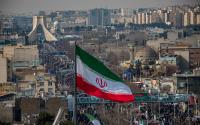8 October 2007Pete Harrison
The world's biggest nuclear operator, France's EDF, is considering building four new reactors in Britain if given the go ahead and says it can have the first of them running by the end of 2017.
The government is close to deciding whether to approve a new generation of reactors to avoid a looming power crisis as ageing power stations are retired and climate change fears hold back gas and coal plants.
"We are looking at the possibility of building four nuclear power plants in the UK on our own or in partnership with others before 2025," EDF's UK division said in its response to a government consultation on new nuclear capacity.
"We believe that new nuclear can be on line in the UK by 2017 ... allowing the public to be fully consulted at all relevant stages," it added.
The government has signalled its support for nuclear power, which is virtually CO2 free and would help Britain meet EU-wide goals of cutting CO2 emissions by 20 percent by 2020.
Environmentalists say nuclear power stations are too risky following the 1986 explosion at Chernobyl and the spent fuel remains radioactive for generations, but power companies say alternatives like wave or tidal power are still far from viable and wind is not sufficiently reliable.
EDF Energy, whose parent company runs the fleet of reactors supplying 80 percent of France's electricity, said it would need no subsidies from the UK government for new reactors.
"The private sector should cover the full costs of new nuclear, including the costs of decommissioning and waste management," it added.
EDF is currently building a reactor at Flamanville in France and estimates the total cost at 3.3 billion euros ($4.66 billion).
"That doesn't mean we'd invest four times 3.3 billion euros, as we're expecting we'll have partners," Chief Executive Vincent de Rivaz told Reuters.
EDF has already said it is talking to British Energy.
"They'd be scheduled over the years to replace existing nuclear plants as they close," said de Rivaz. "All the construction experience gained in France will then be available to the UK."
EDF said most of Britain's nuclear and coal capacity would close over the next 15 years, leaving a possible energy gap of 15-33 gigawatts by the end of 2015.
"Government's modelling anticipates new nuclear coming on line in 2020 and ... an energy gap opening between 2016 and 2022," it added. "We believe that the date of 2020 is unduly pessimistic."
http://uk.reuters.com/article/oilRpt/idUKL0554611720071007?pageNumber=2






